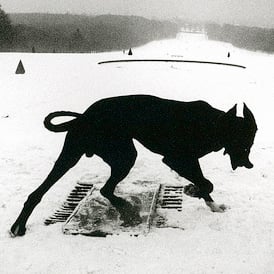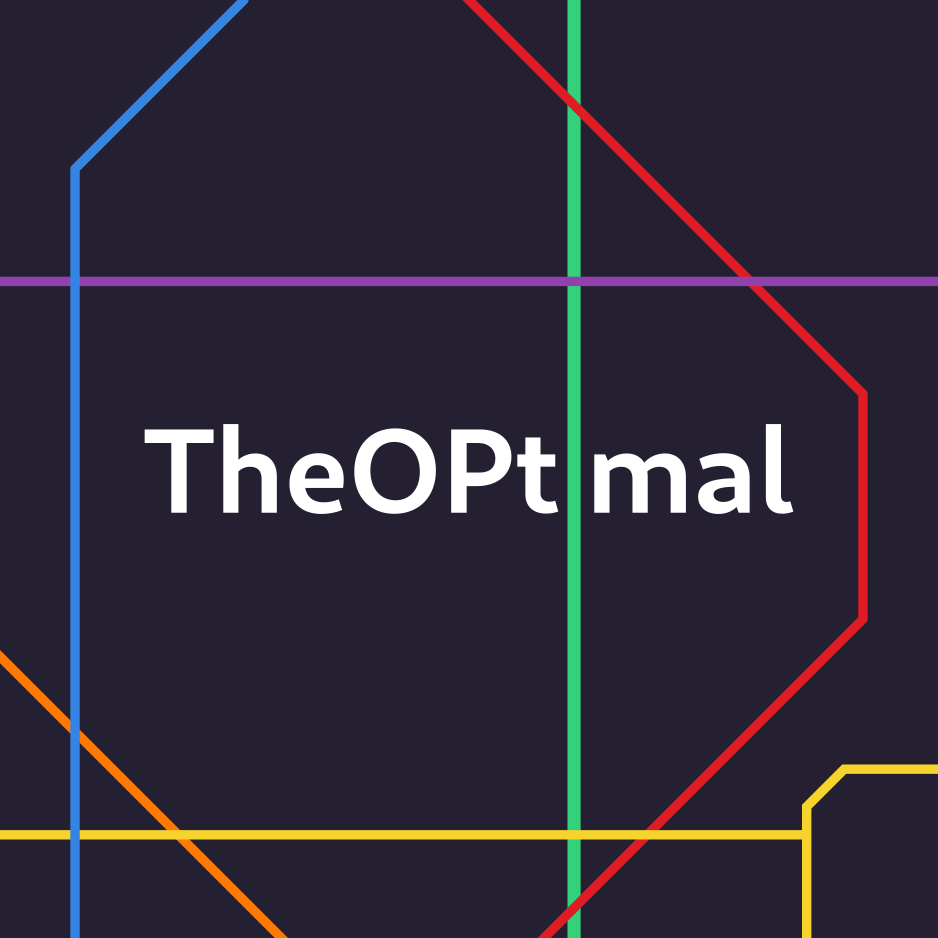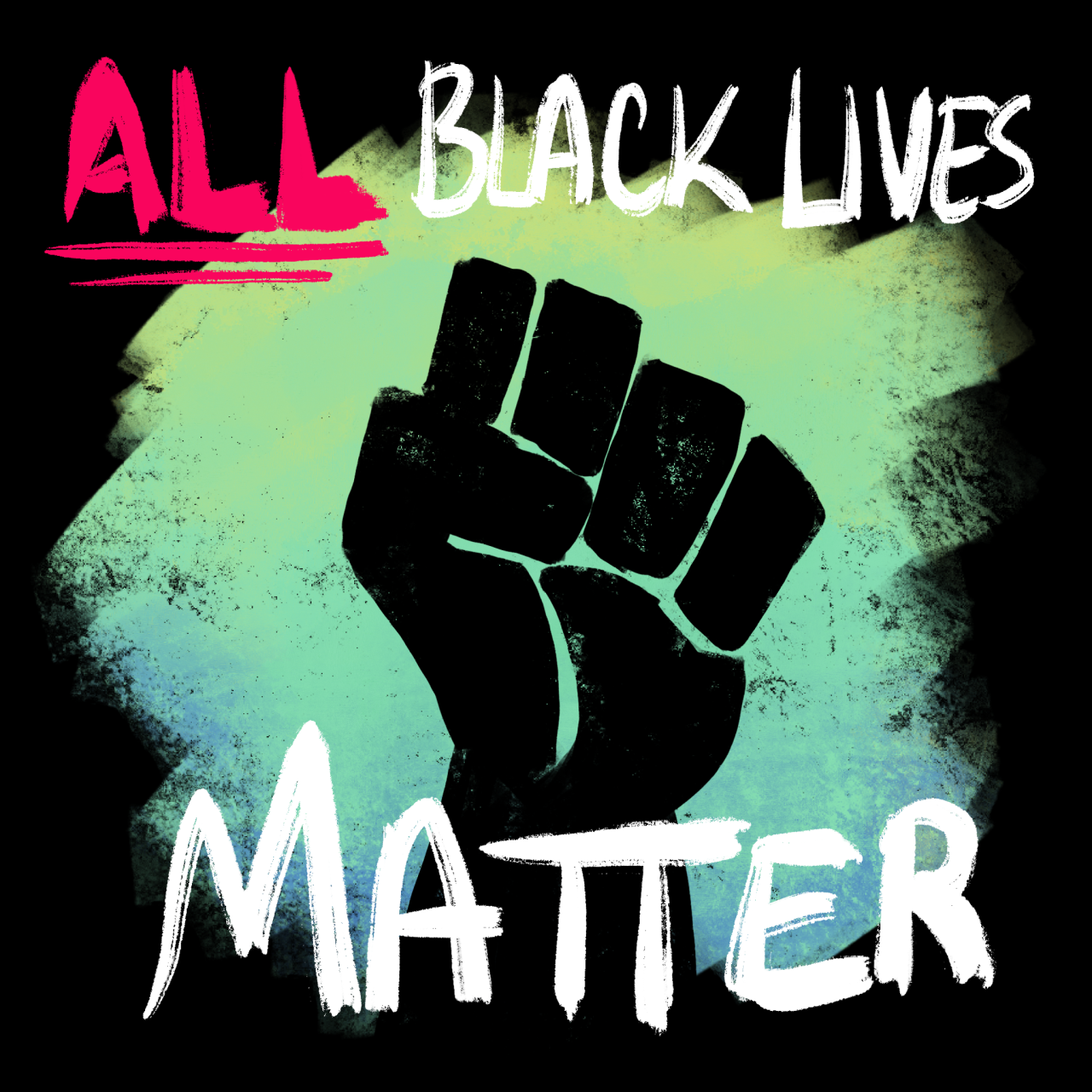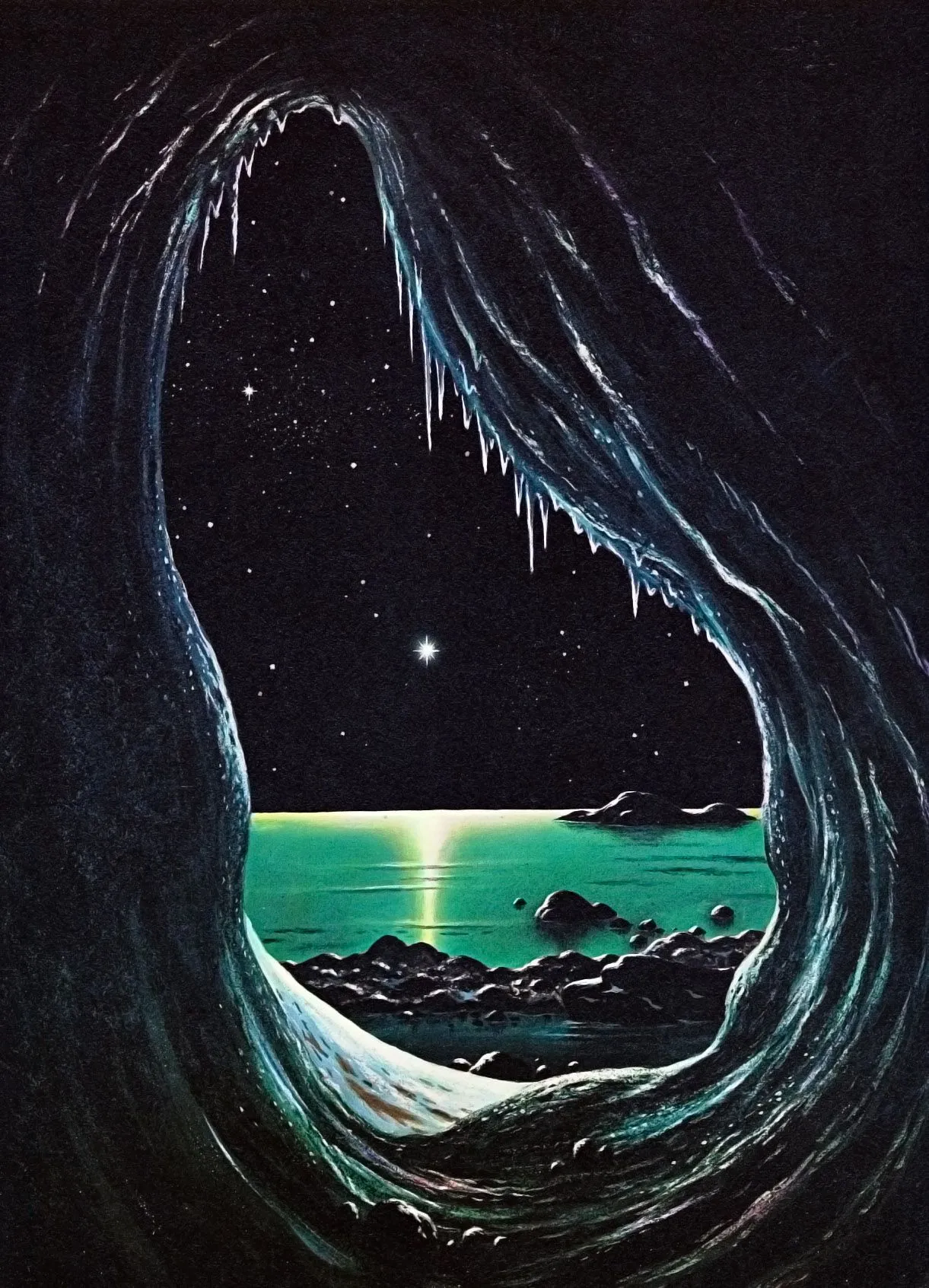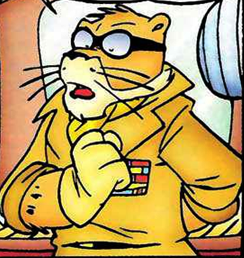I don’t know what a .webp file is but I don’t like it. They’re like a filthy prank version of the image/gif you’re looking for. They make you jump through all these hoops to find the original versions of the files that you can actually do anything with.
Edit: honestly I assumed it had something to do with Google protecting themselves from image piracy shit
The format actually has a lot of benefits - it supports transparency, animation, and compresses very efficiently. So it could theoretically replace GIF, JPG, and PNG in one fell swoop.
The downsides are that many apps don’t currently support it and that it’s owned by Google.
Personally I use webp for images that are not intended to share (e.g. banners and images on my blog), but stick to JPG/PNG for sending to other people.
and that it’s owned by Google.
I mean yes, but it’s
patentirrevocably royalty free (so long as you don’t sue people claiming WebM/P as your own/partially your own work), so it’s effectively owned by the public.Google hereby grants to You a perpetual, worldwide, non-exclusive, no-charge, royalty-free, irrevocable (except as stated in this section) patent license to make, have made, use, offer to sell, sell, import, and otherwise transfer implementations of the WebM Specifications, where such license applies only to those patent claims, both currently owned by Google and acquired in the future, licensable by Google that are necessarily infringed by implementation of the WebM Specifications. If You or your agent or exclusive licensee institute or order or agree to the institution of patent litigation against any entity (including a cross-claim or counterclaim in a lawsuit) alleging that any implementation of the WebM Specifications constitutes direct or contributory patent infringement, or inducement of patent infringement, then any rights granted to You under the License for the WebM Specifications shall terminate as of the date such litigation is filed. “WebM Specifications” means the specifications to the WebM codecs as embodied in the source code to the WebM codecs or any written description of such specifications, in either case as distributed by Google.
Source: https://www.webmproject.org/license/bitstream/
(But Dark, that’s WebM not WebP! – they share the same license: https://groups.google.com/a/webmproject.org/g/webp-discuss/c/W4_j7Tlofv8)
Thank you for this. I was kind of on the fence because of its ties to google but this helps a ton.
You could still be on the fence. It’s Google so for sure it has the possibility of tracking or some other user exploiting bullshit feature but we haven’t figure it out yet.
It’s open source. https://www.webmproject.org/code/#webp-repositories
It’s also just an open file format. Anyone could implement it, and in fact I found dozens of completely independent implementations of webp decoders on GitHub in various languages.
There really is no secret ulterior motive in this case.
There really is no secret ulterior motive in this case.
Sort of. Smaller images mean it’s less work for Google to crawl and index them, if every image is 40% smaller then that’s potentially saving them millions a year in storage and bandwidth costs.
So, yea, it’s better for the web but it also massively benefits them.
Well, they crawl and index anyways. I see no harm done with .webp. One of my friends said with .webp you can’t save an image because it stops you from doing that somehow? I’m unsure, maybe true maybe not.
Open source just like Chromium or Android, right? They’re open source also, right?
Open source just like Chromium or Android, right? They’re open source also, right? 😈
I’m not sure what point you’re trying to make.
Chromium and Android really are open-source. There are hundreds of products like Electron and Fire OS built on top of them without any involvement or consent from Google.
Just because Google Chrome and Pixel phones have some proprietary code doesn’t mean that Android and Chromium aren’t open.
Dammit. Why do you have to make a lot of sense. 😂
And here comes jpegXL claiming the same things. Fun times.
Okay, but jpeg xl is looking pretty good. Especially the ability to losslessly convert jpg to jxl.
JPEG XL came after WebP. It’s more of a successor and less of a competitor.
That said, in the world of standards, a successor is still a competitor.
Jpegxl will die because it has a bad name, that’s it
We usually call it JXL for short.
I’ll take it, hopefully jxl becomes the primary way it’s referred to 😁
deleted by creator
Lol sooo cool, just like my XL boxer briefs and my XL diet coke. Also wtf jpegxl is great at making things smaller
Confusingly, XL doesn’t stand for “eXtra Large”. JPEG has had multiple standards over the years, many of which start with X. In this context, the L in XL means Long-term. As in, they expect this format to last a long time like the original JPEG we all know and “love” has.
That’s makes sense, I can’t shake the extra large connotations on XL :P
Yeah I wouldn’t have an issue with them if they weren’t so incompatible with most of the programs and sites I like to use. It makes them super inconvenient to work with. I know some apps are catching up and supporting them, but it feels like the adaptation is slow and patchy which makes it difficult to know which programs will support webp at some point and when.
Potientially dumb question here, but how does Google own a file format? They own the patent?
I think so, but I’m no expert on the details of legal ownership.
@[email protected] added a good comment here that explains the royalty free licensing.
Thanks!
look up mp3 – that didn’t become public domain until pretty recently (I think 2017?)
not an uncommon thing really
Wait LAME encoders are now obsolete? Tf? How did I miss this?
So basically what APNG tried to be?
APNG is lossless.
True. Why did it remain relatively unknown while webp seems to have taken off?
libpng refused to accept it
mozilla made it because it suited their needs; and libpng (the organisation behind png, and who make the standard png decoder[1]) refused to add compatibility, insisting on mng instead. mng was bad, so nobody used it; and apng was great, but require mozillas version of the decoder so systems couldn’t use both the official version and the apng supporting version together
and have a fantastic website ↩︎
Ah, so it was people being prideful idiots because it didn’t come from their own fiefdom.
partly, i don’t think it was just that. mng did have considerable benefits over apng at the time; but it was a solution looking for a problem. i think they wanted it to succeed because they’d poured time into it, but nobody wanted to support it (mozilla, the only browser to support it to my knowledge, dropped support eventually because the mng decoder was bigger than every other image decoder in firefox put together)
To add to the reply you got, WebP is lossy. Meaning that WebP files are smaller. APNG only added animation and nothing else.
That’s a great idea. But can’t webp simply be converted into a png or mp4 file?
mp4 isn’t generally for images.
Yes you can convert, it’s just that many existing tools may not presently support webp. If you just want a quick & dirty meme you can always screen cap.
The fun thing is
heifis actually effectively single frame of h.265 video because the amount of work that’s gone into making h.265 space efficient also happens to work really well for efficienct compression of individual frames of video aka images
deleted by creator
You would like it if you had slow internet, or you hosted a website.
My website turned 5MB images into 100KB images using webp. My website now loads instantly, saves you bandwidth, and me costs!
Wait really? Are they that much more efficient?
Yep! Not least of all, GIF & JPEG are over 30 year old formats and WebP is about a decade old. So there’s at least 20 years of advancement there
JPEG-XL has been out for three years, and is better and more efficient than any other image format on the market. Google just has been insisting on keeping them off the web because they want to push WebP instead.
It’ll be interesting to see which wins out, .jxl or .webp
Place your bets folks!
I think webp has already “won”, because google refuses to have jxl support in chrome, the web browser most of the people use.
Apart from that, if I’ll have a website I’ll aim to support jxl and the old formats, but webp not even by mistake.
Why? I think this is yet another thing with which google wants to be everywhere for this or that reason and I’m fed up with that.I’d bet on WEBP simply because it was first out of the gate. Even though JXL is likely a better overall solution, it might arrive too late to dethrone WEBP. I’m already seeing WEBP in lots of places.
That means absolutely nothing. We went to the moon with hardware that had ram in kilobytes. Today you need a supercomputer from the 70s to run the add of a Web page.
Progress is not linear. C is still used everywhere while some other languages didn’t live a tenth of its age. New is not always better.
The reasons for this is that computing power is cheap but developers are expensive.
Yeah for sure, new is not always better.
Though for compressed media file formats, that pretty much has been the correlation for a while (though obviously there’s many different conflicting qualities that can make a file format “good” for various purposes)
Take video for example: MPEG2 came along and MPEG quickly became uncommon within a couple of years. MPEG4 displaced MPEG2 due to being more efficient. DivX/AVC replaced that for the same reasons and HVEC/VP9 replaced that. We’ve got AV1 coming now that looks to have beaten h.266/VVC to the punch, but it’s still a fairly linear progression of improvement.
Given all that it’s kind of mad we’ve not seen the same level of iteration on image file formats, but that’s almost entirely down to browser wars and having to pick lowest common denominators. JPEG2000 might have taken off if it wasn’t for the fact only Apple ever implemented it in a browser—it was definitely a technically better format.
It’s due to the maths behind. Special algebra is used for video compression, and a discovery has been made something like 15 years ago that allows a better video compression. It fueled technical progresses of the last years.
For images, we basically hit the wall quite some time ago. The new technologies are more about engineering improvement than math improvement.
Then there is the technical environment. It doesn’t matter if your technology is a bit better than the old one because the cost to change the whole technical environment is insane. That’s why ipv4 is still there for example. Changing everything for a new technology to be used is a long, costly and painful progress. But this is something only developpers can’t cope with, because the development culture is painfully ignorant of industry constraints and time lines.
Lol I still don’t really understand ipv6 and I work in IT. Ipv4 is so much easier and nicer to work with
and HVEC/VP9 replaced that
I wouldn’t say that. Maybe youtube uses it by default (I don’t know, though) but a lot of other sites still use H264.
And I don’t see AV1 even on the horizon.
A couple of years ago (2?) I tried converting some of my huge H264 video files to AV1 with then up to date ffmpeg. It was horrendously slow. I don’t remember the numbers but I’m pretty sure it was progressing much slower than the clock.
Huh, TIL!
Absolutely not. 5mb is what his phone spit out and it could trivially have been reduced to a 100kb easily as a jpeg
No.
Yes.
Would you like to explain why you say no?
Because you’re implying that it’s 50x more efficient than jpeg, it’s not. For similar visual quality of images webp will on average produce a ~30% smaller file.
deleted by creator
WebP files are usually only 24-35% smaller https://developers.google.com/speed/webp/docs/webp_study
The real question is the hell did people downvote me? Looks like Lemmy turned into Reddit in a month’s time…
The real question is the hell did people downvote me?
You shut someone down without informing or educating them on a text based discussion centric community with an academic stick up its ass. A one word response to a complex technical question is terrible etiquette in this sort of social environment.
So… Reddit, ok.
The real question is the hell did people downvote me? Looks like Lemmy turned into Reddit in a month’s time…
Next time lead with the why instead of a one word “no”. This is a discussion forum, nobody knows who you are and certainly nobody is taking your word as truth if you don’t provide evidence.
It should be obvious why to any person.
Bruh…
5mb to 100kb is not a typical result, so I would imagine that you are comparing apples to oranges (e.g. a very high quality jpeg vs a low quality webp)
You only dislike it because whatever bad app you’re using to share them on doesn’t support them.
Stop being the gullible fool and start hating the apps not the file format.
Edit: I also spot your .gif favouritism in there. .gif is an archaic and wasteful format, and asking for it is the same as looking at your car and whining that the fuel has no lead.
The fact that GIF is still a thing in 2023 is baffling
The terminology is sticking around longer than the format, too! Love me some (webm/H265) gifs.
The fact that GIF is still a thing in 2023 is baffling
As opposed to what widely supported animated image format?
APNG, WebP, AVIF, WebM. Not sure about JpegXL
GIF is size and ressource heavy
Of all the formats you mentioned these are supported on popular platforms:
- Twitter: gif
- Discord: gif
- Mastodon: gif
- Reddit: gif, apng
- Tumblr: gif, webp
- Lemmy: gif, apng, webp
That’s why gifs are still a thing.
This is circular reasoning. They are wondering why gif is still a thing precisely because it’s so supported while other formats that are better aren’t and you are answering that it is because it’s supported while other formats aren’t.
In that case the only people that can answer the question are the engineers from those platforms.
Because it’s old and easy to handle. Yes it’s wasteful if you convert whole videos, but really anything under 10s with low rez is easily handleable by pretty much anything. Gif was the first animated format and that’s why it’s big. Also early internet forum days were absolutely plastered with pixelart gifs that ran for minutes and barely swalloed 100kb. You can get a lot of bang for your buck if you save on pixels and framerate. But ofc a 60fps render of some 4k bluray clip will eat your memory. Contrast that with 16×32 px gif that runs at 8fps.
GIF is big because it uses dictionary compression (pixel colors are mapped to a lookup table and then combinations of bits of increasing length are assigned to each table entry, the shortest combinations going for the most used colors, the longuest for the least used ones) which is great for stuff with clear (not-aliased) lines, a limited number of colors and large areas with just one flat color (such as drawings) but really bad for actual pictures (anything real world or imitating it, with natural shading).
I believe GIF still beats all or most other formats (except, for larger images, the actual vector graphics formats used in the programs with which such drawings are made nowadays) for things like drawings. (That said, I think PNG has a mode that does the same kind of compression, used for stuff like the little lemmy icon next to our nicknames here)
Animation on top if it was a bit of a hack due to the header format allowing multiple images in the same file, so it’s really just a slideshow that has no video-oriented compression (i.e. each image is compressed individually and stored whole even if it’s pretty much the last image with but a handful of pixels changed), hence why it’s big when used for animation.
The kind of compression used in stuff like JPEG is based on the frequency of how each color channel changes across a block of pixels - which was 8x8 in the original JPEG - (i.e. it tries to match each block in the image to a sum of waves of different frequencies) which is much better for natural images, but loses information as a perfect match is usually impossible, and video compression methods have all sorts of intermediate frame compression techniques, the most basic of which is “this frame is the last frame with block such and such intact or moved around X pixels plus here’s a bunch of entirelly new pixels” which usually is a lot better than compressing each image individually and storing it, not taking in account previous or subsequent images.
PS: I learned this stuff back at Uni, almost 3 decades ago, which shows you just how old this stuff is.
It’s called an industry standard. We’re using the same bolting in mechanic for ages. Only in computer science do things have to change every year…
mp4? Imgur doesn’t even bother hosting gifs—it automatically converts any you upload to mp4 because gifs are incredibly storage-inefficient.
mp4 is a video format, the key differences with animated images being autoplay, looping and maybe transparency.
The point is the browser just plays the mp4 with autoplay and looping and then people call them GIFs when they aren’t. The only time you are looking at an actual GIF file is when the quality is atrocious and the colors are messed up because it needed to be dithered.
Yes, but if you tried to share that mp4 on other platforms it would be treated as a video, and that’s why gifs are still relevant.
funny enough, not true. try saving a video as mp4 but not too long and without sound (!) and it will be treated exactly like gifs on those platforms.
It’s pronounced GIF
Is that GIF as in GIF, or GIF as in GIF?
Yes
If I remember it correctly you can’t rally beat a good dictionary encoding with wavelet compression for certain kinds of image such as drawings, cartoons and in general images with no or flat shading.
(Might be a bit outdated on that believe as I don’t really know what compression algorithms are used in JPEG-XL or WebP)
Further, GIF is lossless compression, so that means your drawing compressed with it will be much smaller and after decompression you still have the same image exactly, pixel by pixel.
That said, most drawings nowadays being digitally created with vector drawing apps means that an even better format is whatever native vector graphics format used by the app as that can scale to whatever size you want.
The guy clearly isn’t familiar with a lot of image formats and is trying to find out about them by asking, a perfectly reasonable thing to do, and in a special community called no stupid questions, no less.
You don’t need to call anyone a gullible fool and furthermore you’ve not actually helped to answer the question “what is webp”, at all. What are you trying to achieve with this pointless aggression? If you wanted one less “gullible fool” you’d have to answer the question and educate, at best you’ve sown confusion.
What are you trying to achieve with this pointless aggression?
Some people in the tech community just seem to have this weird superiority complex for some reason. They think they’re smarter than everyone else and look down on the normies, meaning they come off… Like this guy. It’s like they put all of their skill points into INT and none of them into WIS.
I feel like this answer is somewhat warranted because OP seems to have already made up their mind that it’s bad. They referred to it as a “plague” and “filthy” despite not knowing what it even is. This comes across as a lack of interest in the actual answer and more just using this post as a platform to rant about it (despite knowing nothing about it).
It’s not unreasonable to ask everyone here to word their questions politely (or at least neutrally). This is somewhat aggressive, so I think an equally aggressive answer is perfectly suitable.
Ok so I’m going to be making a lot of assumptions here but I think that OP’s language was hyperbolic and over the top because it was tongue in cheek and trying express frustration with what to them is an inexplicable roadblock to their normal web use, whilst also genuinely trying to figure out why such an obstacle would be put in place. Until they get the necessary information they’ll never see it as anything else. Looking at it that way the kind of nerd rage response devoid of the necessary context or pertinent information for the person it’s directed seemed as inappropriatenas it was counterproductive.
That said, those are just assumptions I made based on the tenor of OP’s speech and I guess you could argue I didn’t extend the same benefit of the doubt to his respondent. I don’t think that matters much though, it’s still utterly pointless bloviating at someone who just clearly doesn’t understand.
this is nostupidquestions, not /g/. take your meds
Why’s man so vexed about file formats? Chill
Because GIF is horrible for 90% of what it’s used for these days.
lol hates file format like it owes him money
Everytime a post gets displayed on a screen, it got transferred over a dozen routers, parsed by a network card, decoded byte by byte to get each pixel’s color and then displayed on screen
Transferring and decoding all that extra data on millions of computers isn’t free
When you make an instagram post that gets seen by millions of people it’s absolutely not negligible to use webp vs a jpg and choosing one over the other because you’re just… used to the extension? is downright getting unacceptable if you are at least a lil tech savvy
People need to start using newer file format for real now. It’s been 20 years
…PNGs took about twenty-five years to achieve ubiquitous support across consumer software…
You don’t need to call them names lmao see the comm
Why are you so mad? Those are just file formats
just?!?
Chill the hell out, maybe light one up if need be. Many people don’t have the option of choosing thier own app.
Neither have they the choice of what format others use. The point here was that the apps are to blame for not supporting the format, not the format for not being supported. It’s a common format nowadays.
Webp is an image format.
Jpg is ancient, and gif, holy shit gif is from stone age.
I dunno, if you’re playing a video, you probably want x264 or better these days, no? For music, we use some variant of mp4 or lossless at this point.
Yet with pictures, for some reason we insist on the old shitty stuff.
Using jpeg or gif is like using mp1 for music and VideoCD for video. Come on now.
The only problem with webp is that there’s quality loss if you convert an already compressed jpeg into webp with high compression rate, like some web sites do. That can suck, but I don’t know how else to get people to use more modern formats. Otherwise we’d be using ancient formats into the 24th century.
The old shitty stuff was designed to compress images and stuff to be small enough to transfer on potato internet.
Now the HTML size itself ends up larger than many of the images while they code in endless advertising and scripts.
Old internet was better TBH.
This isn’t really relevant when webp is more optimised and smaller file size. People are determined to force things to be GIFs despite them looking terrible and taking up 50MB for 10 seconds of 720p looping video.
Oh, I forgot to mention in my other comment, as far as compression goes, what ever happened to good old MIDI? 🤔
Midi is quite literally a text format, and you can open it in anything. It’s just a matter of interpretation what comes out of it.
I’m looking at a MIDI file in a hex editor right now, it’s literally not a plain text file. Plain text files use carriage return and/or line feed characters to end a line of text. MIDI uses null to separate instrument notes and attributes.
Also, when was the last time you tried opening a MIDI file? Seems like half the media player apps and even some operating systems don’t even natively support it anymore.
Ok apologies. But you get my point, it’s a set of instructions made for actual hardware with built-in samples. I don’t think there’s any such thing in modern computers even beyond emulation on OS level.
Sound players are made to play sound, not instructions, and most people don’t need to play MIDIs. Even so, the actual playback experience then depends on the OS/hardware/whatever, which again is not something you expect from a sound player.
You can always use specific software to play MIDIs, which are better equipped for it with stuff like MIDI font support, instrument selection and other stuff.
I never said GIF was all that great. Hell, beyond the fact that it was piss poor compression, it didn’t even have audio. 🤦♂️
Now MPEG1/2, MP3 and JPEG weren’t all that bad, considering the era of technology they came from.
I can definitely agree that modern compression has improved beyond that even, but at the same time now everything is automatically tagging in all sorts of extra data like, I dunno, the GPS location the image/video was taken. Like hey, let’s just broadcast everyone’s address to the rest of the world…
You can put metadata into jpg and mp3 as well, no differences there.
Of course, yes, you can. But back then, that was usually up to the person recording the media to manually add metadata later in processing.
These days everything is getting tagged automatically as you’re recording stuff.
Bye bye privacy.
And if you tell someone that it’s creepy and they should disable it, they look at you like you’re the weird one.
Indeed.
We live in a society. 🤷♂️
So was QuickTime and RealMedia. Today we know how to compress things better.
Agree with the HTML sadly… Sigh.
GIF was ancient in the YTMND.com days. And nowadays, YTMND is like two decades old. Back when my life had hope.
Jpg is ancient
Sure, but so is .zip, and that’s still useful.
IMO a better argument would be how and why webp improves on jpg (better compression, etc), not just “it’s newer”.
I shouldn’t need to say this, but here goes: “old” and “shitty” aren’t actually synonyms.
It is more efficient. I thought it’s obvious, that’s why web sites use it, to save traffic and potentially storage. Hence my comparison to video formats. You don’t see YouTube playing videos in Real Media format.
It’s also more universal, combining features of jpg, png and gif. Gif especially is a dreadful format for what it’s commonly used. It was designed for tiny clipart animations, not HD video clips. Something like x265 can actually be hundreds of times more efficient.
Do you know if there are any formats that provide for native looping like gif? I find that feature useful for some standalone files.
WebM can create loops
Even .apng could but was rarely if ever done for some reason.
I haven’t even heard of .apng, is it widely supported?
No, lol.
It stands for animated png btw. It was an extension. The benefit was that it always rendered something everywhere, if it didn’t support the animation, because it would be read out as a regular (but suspiciously heavy) png in that case.
I brought it up because it’s yet another old-ass .gif solution that didn’t stick because people love the term “gif”.
I mean for audio I use these large mostly black disk things…
For nonphysical media I’m a filthy streaming whore.
For music, we use some variant of mp4 or lossless
AAC is only 5 years younger than JPEG. Lossless music formats are about as ancient as GIF.
But requirements for audio hasn’t changed that much, and overall it’s a much older and thus mature technology, that there isn’t much left to figure out. Consumer CD format with 16bit 44.1kHz has been around for 40 years, and you don’t need much better quality than that. So there isn’t much left to figure out.
But images and videos are different. 20 or 30 years ago you didn’t need to commonly send 20 MPix HDR photos and HD to 4k videos over the internet. Shoehorning formats that were made for 640x480 pictures and tiny silly clipart animations just doesn’t make sense, especially with all the development that’s been made in that time. Newer compression techniques can help, but you can only do so much.
Shoehorning formats that were made for 640x480 pictures
Err…nothing in the file format spec restricts jpg to a particular size. I would actually argue that this undermines your point – bandwidth was incredibly limited in the 90s compared to what I see today.
Simple example: a 640x480 image is (at least) 307,200 bytes = 0.3M, so it takes at least 5.4 seconds to transmit over a 56k modem. A 4k image, same color depth, is 16000000 bytes = 15M. On a gigabit connection (what I have), that takes about 0.02 seconds.
I was taking more about quality than size in this particular comparison. In 1993 you were happy to squeeze through an image in any quality almost.
It goes hand in hand tho.
If you can compress a 50 MPix, 16-bit, high dynamic range image from a modern high-end DSLR to a reasonable size with a better algorithm and format, you’d also have an easier time squeezing a crappy 640x480 pic to an even smaller size. We just couldn’t do either so well 30 years ago.
Heh, in 1993 I wasn’t online at all. '97 or '98 is more like it in my case.
That’s a fair point, too, better image quality for a given size. I was more focused on raw bandwidth demands.
Jpg is ancient, and gif, holy shit gif is from stone age
Where does PNG stand in this timeline?
I think PNG is a good format even today. It’s lossless compressed, so there isn’t that much you can squeeze out of that with new algorithms as you can out of lossy formats with new and smarter approaches.
Sadly, PNG is being terribly misused on the internet too. What it’s good for is simple drawn graphics, which it can compress to oblivion. So it’s perfect for screenshots of say, your operating system’s windows. I took a sshot as I’m typing this, and it came out as 190 kB. Not bad.
But what it’s so commonly used for, is people taking screenshots of photos such as from Instagram, and then reposting them. So instead of a tiny and shitty 50 kB IG picture, you get a 1.5MB PNG screenshots. Some then recompress it to a 1.5MB JPG for “maximum quality” when they realise they can’t upload PNG to photo sites.
I also very often encounter huge PNG photos with their extensions changed to JPG, and I don’t know how or why that is happening.
people taking screenshots of photos such as from Instagram
This one really grinds my gears. Why do so many people insist on sharing text by taking a picture instead of pasting the text? Or better yet, just linking to the original? It’s such a waste of bandwidth :(
I also very often encounter huge PNG photos with their extensions changed to JPG, and I don’t know how or why that is happening.
Probably people uploading to sites that limit extensions thinking they’re clever by just changing the extension, or being straight up wrong in thinking the extension changing actually changes the file type.
The sites might not bother to check the metadata, and anything worth any salt that displays the image will ignore the extension anyway.
That sounds logical, but on most operating systems these days the extension is hidden, and/or you need to go through some hoops to change it. So I would think that most people who think that wouldn’t even know how to change it.
But more importantly, where do those PNGs come from in the first place? Sure, some are clearly screenshots such as of IG or TT, but there are tons of large PNG images that are clearly photos from cameras that someone just took and resaved as png (and later, or someone else, then renamed to jpg).
I could understand that happening occasionally for a bunch of reasons, but I’ve encountered this so many times, it’s pretty bizarre.
Btw it’s something you might not even notice if you aren’t using e.g. an image viewer that uses a different icon or background based on actual image type.
I suppose another solution might be that it falls under those lines, but some misbehaving services where they’re uploaded are giving out improper filenames and not confirming the type.
Though I can’t imagine many of those being incredibly popular, or, it’s just that images are recycled for so long that eventually many of them hit such a site in their lifetimes.
Yet you still posted it in jpeg. Can’t fool me with your sly tricks.
Input #0, image2, from '85974f2f-5463-40ba-93ea-45417c183fcc.jpeg': Duration: 00:00:00.04, start: 0.000000, bitrate: 54211 kb/s Stream #0:0: Video: mjpeg (Baseline), yuvj444p(pc, bt470bg/unknown/unknown), 1513x947, 25 fps, 25 tbr, 25 tbn
After reading through more comments in this discussion, maybe I have my answer, at least partially. A lot of people here suggest to use extensions and other ways to convert webp from the web to… PNG.
And then that PNG gets shared further…
Oh gawd if that’s why so many pngs are on the net… What a way to take a good idea and completely fuck it up. Now instead of a 2MB jpeg or 0.5MB webp we deal with 10MB pngs 🤦♂️
It supports features such as lossless editing and transparency but the compression is pretty bad.
It’s lossless, it’s meant for 2D and drawn graphics. Can’t do that much with lossless compression.
It’s still bad compared to modern lossless algorithms. PNG is very old and even though PNG encoders have evolved, it is still fundamentally a decade behind modern lossless compression algorithms.
For example: JPEG XL in lossless mode compresses at least 30% better than PNG.
Also, PNG is not actually lossless in many cases. PNG only supports RGB colorspaces. If you try to store anything that’s not in an RGB colorspace (e.g. a frame of a video) in a PNG, you will lose some color information as colorspace conversion is not lossless. Example of someone running into this issue: https://stackoverflow.com/q/35399677
JPEG XL supports non-RGB colorspaces so you don’t have this problem.
Okay but that difference is not as critical as with jpg, which are also more abundant. The bigger problem with png is that people use it for things it’s not meant or designed for - frame of a video being case in point.
If anything, it just proves how lacking we are in other image formats, when we keep shoehorning clipart formats like png and gif into other duties. Well not lacking as in not having them, but not using them.
There’s no real reason why you shouldn’t use PNG for a frame of video. I’m not talking about using it as a video format, I’m talking about extracting a frame from a video and sending it off to an editor for inclusion in another video or image.
As a user, I would expect that I could use the most popular lossless image format if I want to losslessly share a frame from a movie with someone.
Of course I do agree that we need adoption of other image formats. We really should not still be cramming everything in PNGs or JPGs in 2023.
There is, exactly because png is made for strict rgb colorspace. Especially today when videos can be in HDR and with all kinds of color correction shenanigans, so which you won’t get back once you try to put the PNG back into the video.
But I’m not a video editor, so I don’t know what still format is best suited for this. I imagine real editors can deal with it, and for regular people who just make screenshots for memes, it’s good enough. As I said, png is still a good enough format, but let’s not use it for stuff like converting webp photos for further sharing.
PNG compresses like nothing else when it comes to graphs, text, UI elements, digital drawings, comics, screenshots from apps etc. And doesn’t suffer from “mosquito” artifacts and other .jpg nonsense. It was never meant to be used for photographs and other statistically “noisy” images for which .jpg works much better.
Isn’t it funny how the internet is full of Instagram screenshots in PNG, and Twitter screenshots in JPG?
It feels like some extra-dimensional aliens are fucking with us and making everything backwards.
It’s just a new picture format that is arguably better than jpeg in many scenarios. It has been around for many years. Windows just refuses to do file associations correctly, so people hate it for no reason.
Here is an example of a non crap webp:

Is there a joke I’m missing here?
No, it’s just a random blender render.
For anyone who doesn’t know, you can easily change the file extension to .jpg and it’ll still work.
But also know that it’s not a jpeg, and it only works because whatever app is opening the jpeg is able to read the webp format.
You cannot rename a file from webp to jpg, but you can change the URL to .jpg and it will likely serve you the jpeg version. You can also convert webp to another format with dwebp or MS Paint.
Here’s a Firefox extension that adds right-click context menu options to save the webp as PNG or JPEG:
https://addons.mozilla.org/en-US/firefox/addon/save-webp-as-png-or-jpeg/
and its GitHub page:
https://github.com/jscher2000/Save-webP-as-extensionMakes it a bit easier than downloading the webp and converting it.
Google is going to fuck it all up. So try the add-on when you can.
deleted by creator
Google is going to fuck it all up
What do you mean?
Search google manifest v3 and new API integrity
But… He linked a Firefox extension… Which is keeping support for v2 api calls as well
🤦♂️
It’s a image format with extremely good compression that’s tiny doesn’t look bad. As someone who had shitty internet for years I definitely welcome them but as usual with Googles inventions they push it on to everyone and let other browsers catch up.
Webp is a fairly standard if rather new image format, that are frequently used by websites due to their small file size. To further cut bandwidth costs and loading time, websites will often only include a tiny webp of an image until you click to expand or something like that, so that they don’t have to serve a massive image if the user will only even see a thumbnail sized preview. However, this does break the “save image” button as if you try to download the thumbnail, say from google images.
Completely separately, some scummy sites will make you sign up for an account or something to download a full size image, and the only advice I have here is that it is almost always faster to find another site with the image then jump though the hoops.
Or print screen and paste into an image editor
I take a photo with my Polaroid.
Just a way for Google to influence and force change on end users away from previously accepted standards, a strategy that allows them to further obfuscate attempts to DRM all media to make sure only authorized parties can play in the sandbox. Don’t worry, they’re trying to move the entire browser that way as well. Mandatory ads and mandatory DRM that can scan your cache and local files for possible violations are coming right goddamn behind it all.
WEBP is effectively a container format warped into a media compression format, it’s strength that’s actively exploited is obviously in saving a little bandwidth by (further) compressing and serving smaller sized cached webp files of existing jpg/png/gif/etc files to end users.
PNG (and JPG for that matter) has worked just fine for static image files for decades, but that was a community project created to work around the patent encumbrance of GIF so there’s not money to be made and nothing to embrace/extend/extinguish by the big patent happy corps by allowing it to retain status as a ‘standard’ in active use. Bandwidth, processing power, and storage have come a long way since PNG started giving us better quality than JPG’s inconsistent compression artifacts.
/waves old man cane around in the air in a threatening manner
Can someone give me an example where webp gets in the way? I’ve been using it for a while and both macOS and Windows seem to support the format without any third party extensions for a while now and so do the Affinity apps.
I can use webp like any other image format at this point.
Adobe has no time for it, so it ads that annoying extra step when collecting assets. I would appreciate Adobe support for it natively in Pr / Ps / Ae / Me and I’m cool with it.
Wow, doesn’t surprise me that Adobe does not support it. They still don’t support full screen or native dark mode on macOS in After Effects. Guess poor Adobe can’t be bothered to update basic functionality.
There’s a plugin to add support in PS, it’s worth getting if you use them often.
Oh good to know. Thanks! I’ll explore that.
I’m pretty sure discord does not want to play nice with it whatsoever
It doesn’t do avif or jxl but it does handle webp
It’s chromium under the hood
I have an older version of Office (and more importantly, Access) at work which doesn’t want to hear anything about .webp. When I need to make a document containing product pictures for a customer, .webp is a huge annoyance and time waste. Luckily the Firefox extension that bans .webp and forces .png or .jpg saves the day.
Transcoding and serving images as .webp as default is fine for saving BW and all that jazz, but when I click “Save image as” I should automagically end up on my disk with the original image format whatever that might be. But since that doesn’t seem to be a thing, I’ll happily find a way to force the server to serve the original all the time since for me BW is not a problem, but I don’t want to waste time converting every image before I can actually use it.
I often will use the Windows Snipping Tool to screenshot, then copy/paste the screenshot. This also works around sites trying to block you from right-clicking images. Granted you’re limited to screen resolution then but web images are almost always so tiny anyways that makes little difference most of the time
Webp is a more modern image standard built for the web. Gif has major limitations, and animated gifs are actually bigger in size and worse quality than video files - these days, very few gifs you see on the web are actually .gif files. A while back imgur started converting them to mp4 behind the scenes.
Webp was built with animation in mind, so it works like gif and with much better file size. Even though it’s relatively new it should have decent support in most programs that have been updated in the last few years - so you shouldn’t necessarily have to jump through hoops to use it.
Lemmy also converts gifs to mp4. Or at least lemmy.world does.
is there a gif vs jif aspect to this format yet?
The B is silent so it’s pronounced “We Pee”
There’s actually a transparent t at the end (as .webp supports transparency), making it pronounced “wept”
Why do so few apps (besides browsers) seem to support it? E.g. Win10 photo viewer and seemingly all my messaging apps
The format itself sounds good, and I see it everywhere online, but is there some reason it’s unsupported?
Works great in Ubuntu.
My guess is Microsoft doesn’t like it because Google came up with it. Ms has had some issues with recognizing open formats before. Could be you are using old versions of apps too.
Oddly enough I had a hard time getting webp files to work as desktop backgrounds on Ubuntu even if it opened it fine in the viewer. Had to use a converter
Photoshop couldn’t open it which is absolutely hilarious for an expensive app… while Paint.net can.
Paint.net is one of the first apps I install on every new computer. It’s just excellent for quick and dirty image manipulations.
.webp was developed Google so of course Microsoft hates it and tried to hinder it’s adoption.
They also don’t, by default, support HEVC and charge you to open them now… it used to be a free app on the Microsoft store.
https://www.windowscentral.com/microsoft-now-charging-hevc-video-extensions
That’s not on Microsoft. HEVC is not royalty free standard, so Microsoft had no chocie.
I can recommend qimgv for an image viewer.
Because Google bad, even when they make the rare good thing
WebP is awesome (JPEG-XL is awesomer though). It compresses better than JPEG which was introduced 30(!) years ago. It’s time for JPEG to go away.
Google being fucking Google.
I downloaded the Save By Type extension because it was impossible to some of my schoolwork this term due to the webp BS.
Dont blame google, it is Mucrisoft’s fault for refusing to support them under default windows. The format itself is in many ways superior to both PNG and JPEG.
If one company is pushing something (google) and several others have trouble with it (MS, Apple, Adobe) then maybe the pusher is to blame for issues?
Gimp, who’s developmental team consists of a bunch of volunteers supports it, the reasons those companies don’t support is is either because they don’t care about users (Adobe), or because they are pushing their own, proprietary format. (Apple) Microsoft directly competes with Google in the cloud ecosystem space and therefore wants to make using Google as painful as possible. (See microsoft making it a huge pain to switch the default browser to chrome)
See microsoft making it a huge pain to switch the default browser to chrome
Are you high? Chrome dominates the browser market. This is such a blatantly terrible argument.
I didn’t know this either.
“Google launched the WebP format as part of its mission to make loading times faster across the internet. WebP allows websites to display high-quality images — but with much smaller file sizes than traditional formats such as PNG and JPEG.”
It’s a great format—they do make websites load noticeably faster (especially with a lot of images), however it’s extra work dealing with compatibility and it does make it harder for users as they aren’t compatible with some of software/operating systems yet
I’ve never encountered a program that wasn’t compatible with WebP, what are you using?
I have since tailored my app choice for webp so unsure nowadays, but my experience was that Windows photos could not open them, Photoshop requires a plugin, websites don’t allow uploading them, the list went on. I love webp but the application support has been (or was) abysmal for years.
File explorer


